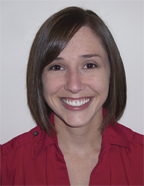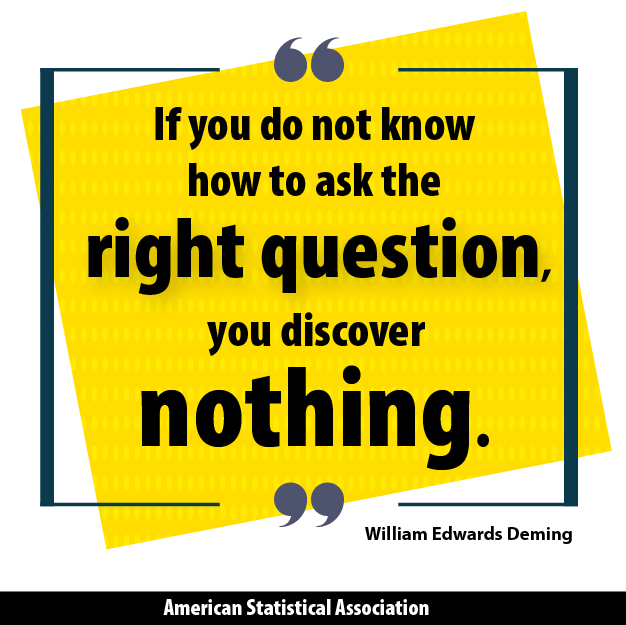 Stacey Winham earned her BA in mathematics with a concentration in statistics from St. Olaf College. She is working toward a PhD in statistics with a focus on statistical genetics at North Carolina State University.
Stacey Winham earned her BA in mathematics with a concentration in statistics from St. Olaf College. She is working toward a PhD in statistics with a focus on statistical genetics at North Carolina State University.
 Danny Modlin earned his bachelor’s degree in mathematics from Elon University. After teaching middle-school and high-school mathematics for six years, he earned his master’s degree in statistics from North Carolina State University and is now working toward his PhD.
Danny Modlin earned his bachelor’s degree in mathematics from Elon University. After teaching middle-school and high-school mathematics for six years, he earned his master’s degree in statistics from North Carolina State University and is now working toward his PhD.
After decades of scholastic activity as a student in a classroom setting, finishing your coursework and moving to the research portion of your degree can be exhilarating and nerve-racking. The final portion of your academic journey—the dissertation—begins with this transition and the choice of a PhD thesis adviser and research area. It is important that you think carefully about this choice, as it can affect the rest of your graduate school career and future career path.
Rarely can a student find both the perfect adviser and research area simultaneously. Finding the right fit involves some level of trade-off, but achieving balance between adviser and research area is essential. Students typically accomplish it through one of two approaches:
-
Choose an adviser and the research area follows
Choose a research area and the adviser follows
Choosing an Adviser: Stacey’s Story
I began my transition through my choice of adviser. I was initially interested in statistical genetics, but had few thoughts about a direction within that expansive area. I have a broad set of interests, so I knew I would be satisfied with most areas of study. What was most important to me was not necessarily what I would study, but whom I would be working with and the relationship we might have. Once I found the right adviser, I knew the right research area would follow.
If this sounds like you, I suggest you first ask yourself several broad questions to identify exactly what or who you are looking for. Begin by focusing on personality type. Do you want your adviser to be relatively hands off, allowing you to dictate your own course of study, or would you prefer an adviser who is more involved? Do you prefer structured and organized or flexible and spontaneous? I am a relatively methodical worker who likes to plan ahead, so I felt that working with someone less organized might be stressful and frustrating.
Also, focus on the types of work and activities in which a potential adviser might be involved. Do you want an adviser who does a lot of outside consulting or works with many collaborators? What about the number or impact of their publications? Because I wanted to focus on applications, rather than theory, an opportunity for collaboration was imperative to me.
Once you’ve identified these general qualities, focus on who can give you what you need. For instance, if you want an adviser who can devote a lot of time to you, maybe you should consider a junior faculty member with fewer graduate students. However, if the strong impact of your adviser’s work is paramount, a senior faculty member might be more appropriate. Additionally, what type of connections do the various faculty members in your department possess? Who works with collaborators you might be interested in, and might they be able to help you find a job once you graduate?
Next, start to shop around. Browse your department website to learn more about the interests and activities of the faculty. Skim some of their papers and talk to their students. Most importantly, ask a lot of questions. You may ask other students, but don’t hesitate to ask faculty members directly. Set up a time to talk, so you can get to know them and their research and they can get to know you.
Ask a professor you trust for recommendations, since they will know a bit about your personality, interests, and credentials. Possibly one of the best things I did was sign onto a small data analysis project over the summer before making my choice. I was able to get an introduction to the type of work involved in my adviser’s research area and an idea of how we would work together. After working on a couple of these small projects, I knew she was the right fit. Since that time, I have gradually developed a passion for the research area.
Choosing a Research Area: Danny’s Story
My transition to research began during a summer in which I was in need of funding. I approached the program director and asked if she knew of any professors who had a project that could provide funding. Not long after, she presented me with the opportunity to assist in a hurricane forecasting project. Throughout that summer, I provided input into the methods used in the forecast calculations and was trained by the soon-to-be graduating meteorology student to take over producing the forecasts.
Being from eastern North Carolina and having a prior interest in hurricanes, I enjoyed my summer work. As the summer ended, I sat down with the collaborator and my statistics faculty contact to discuss several issues within hurricane modeling with which statistics could assist. From that conversation, my statistics faculty contact became my research adviser and the meteorology collaborator became my co-adviser.
There are benefits to selecting your research area prior to your adviser. One is the ability to guide your research to your choice of theory or application. Everyone has decided whether they are more theoretical or more applied. Although your adviser will usually give you options for research directions, it is rewarding to have input into this important feature of research.
I knew I had an interest in hurricanes, but working with hurricane forecasting gave me the ability to perform statistical analysis on hurricane data. This project introduced me to scientists outside my statistics department and gave me the opportunity to learn about how statistics could benefit another research field. The relationship with my collaborator led to his becoming my co-adviser, which opened up more possibilities for publishing papers. He also introduced me to and directed me toward people who have provided information about continuing my research as a career. Though it may not be ideal for everyone, I think my approach to finding a research adviser served me well.
Making the Transition
Once you’ve chosen an adviser and research area, the next step is to begin your research. One of the biggest problems students face is staying motivated once they no longer have regular classes and exams. Without those requirements in place, it is all too easy to procrastinate. To avoid this pitfall, we suggest establishing long-term and short-term goals with self-imposed deadlines. Making a (flexible) schedule to provide structure to your days and weeks also helps.
Make sure you don’t isolate yourself. One of the quickest ways to lose motivation is to cut yourself off from those in your department. You may find the emotional support from others going through similar situations to be reassuring.
Furthermore, if you’re having trouble making the transition, consider auditing a course or two. You won’t have to study for tests and complete weekly homework assignments and you will get to learn new information in a structured setting and have the chance to interact with classmates. Also, as your research progresses, don’t be afraid to ask questions. Just because you’ve finished your coursework does not mean you’re expected to know everything, so try not to put too much pressure on yourself. Remember that every great work starts with a small first step.




Leave a Reply